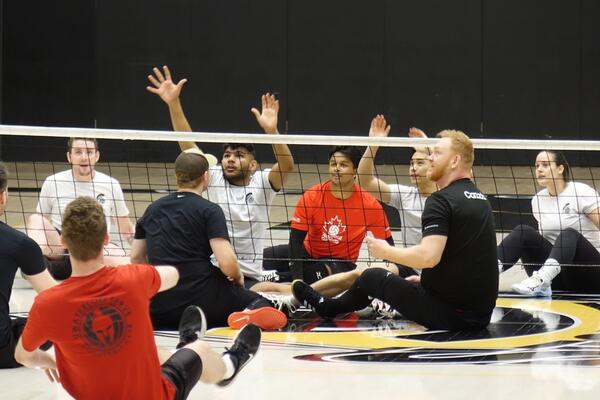
Building a culture of accommodation
Inclusive and accessible education means prioritizing accommodation

Inclusive and accessible education means prioritizing accommodation
By Jon Parsons University Relations
Dr. Jennifer Gillies
-Associate director, AccessAbility Services
Creating an accessible university is about planning and designing a campus and a student experience that is barrier free. Accessibility is in some respects an approach that takes into account the needs of all.
Accommodation, on the other hand, takes on a more individualized focus. Accommodations remove barriers that impede students with disabilities in a way that is responsive to their unique circumstance.
Accommodations at the University of Waterloo are centrally managed by AccessAbility Services, who works one-on-one with students and their instructors to implement their individualized accommodation plan.
“Appropriate accommodations provide students with opportunities to meet the academic standards of their various courses or programs,” says Dr. Jennifer Gillies, associate director of AccessAbility Services. “Access for all is great for all, but accommodations are individualized by nature. It’s about that one specific individual and what accommodations they need to access their education.”
One misconception that Gillies often hears is that accommodation means someone is getting something extra or getting special treatment. She points out that the opposite is closer to being true.
Because of the complexity of a university, it can be difficult to remove all possible barriers, especially since, from the point-of-view of disability, an individual student will have their own specific needs.
“I think it’s important to try to change the mindset on accommodation,” Gillies continues. “In essence, it’s the student who is accommodating the institution if they have to overcome barriers. Students with disabilities often have to spend additional time and money to access their education. And in doing so, it’s almost like a tax that you have to pay as that individual.”
According to the Ontario Human Rights Code, post-secondary institutions have a duty to accommodate. And more than that, as Gillies notes, there is also a duty to inquire, which means instructors, for example, must proactively try to help students who are unwell or perceived to have a disability by offering assistance and referring to AccessAbility Services to explore the need for accommodations.
Part of shifting the thinking around accommodation is about how we understand disability. There are various models of disability, some of which have a much broader view.
“The Ontario Human Rights Commission interprets disability as an expansive term,” Gillies says. “It includes a variety of mental health conditions, which includes the psychological impacts of racialized trauma or sexual violence, and it includes other forms of disabilities and conditions that aren’t always visible. When we expand our understanding of disability, we’re opening up our understanding of the duty to accommodate.”
In many ways, Gillies continues, a broader view of disability implies “building a culture of accommodation.”
“That is going to be so important for universities going forward. And right now, part of building that culture is ensuring everyone in the post-secondary sector is aware of their duties and responsibility, and all the tools available to support accommodation.”

Read more
Company working with amputees to make ‘a fulfilling life more comfortable’

Read more
Recent philosophy PhD graduate breaking new ground in disability studies

Read more
Nasif Chowdhury balances athletic career with study in Recreation and Sport Business program
The University of Waterloo acknowledges that much of our work takes place on the traditional territory of the Neutral, Anishinaabeg, and Haudenosaunee peoples. Our main campus is situated on the Haldimand Tract, the land granted to the Six Nations that includes six miles on each side of the Grand River. Our active work toward reconciliation takes place across our campuses through research, learning, teaching, and community building, and is co-ordinated within the Office of Indigenous Relations.